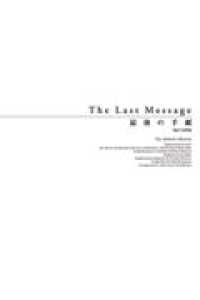Full Description
Recent concerns about the unexpected adverse effects of marketed drugs, such as COX-2 (cyclooxygenase-2) inhibitors or specific statins, raise concerns not only about reporting these events during premarket studies, but also about the responsibility for ongoing surveillance of drugs once they are on the market. Sometimes serious adverse drug reactions are fully appreciated only after a drug has been on the market for years. Therefore, when a drug is approved and released to the market, large numbers of patients will be exposed before all the potential adverse effects have been identified and thoroughly studied. Currently, there is no clearly defined process for addressing safety questions about drugs after premarketing research has occurred.
In November 2005, the Institute of Medicine's Forum on Drug Discovery, Development, and Translation convened a workshop to explore issues associated with the reporting of ADEs. The workshop addressed the following questions: How can ADEs be effectively identified, particularly when the adverse effects are rare? How can the direct, causal effects of drugs be distinguished from simple associations? How can health-care professionals and their patients' aid in the identification of drug-related adverse events? How can knowledge of ADEs be more effectively used in clinical practice?
Adverse Drug Event Reporting reviews current sources of information on adverse drug events, including the FDA's MedWatch program and the AERS, institutional review boards, and the CMS. This report considers the ways that consumers and advocacy groups can be involved in reporting adverse events, and discusses drug interactions, problems with current databases for capturing and evaluating interactions, and difficulties in communicating information about adverse drug interactions. This report also describes new requirements for information contained on drug labels and how labels can be used to communicate information about risks and drug interactions to consumers and practitioners.
Table of Contents
Front Matter
Summary
1 Introduction
2 Current Adverse Event Reporting Systems
3 Active Surveillance Systems
4 Consumer Involvement in Reporting Adverse Events
5 Drug-Drug Interactions
6 Drug Labels
References
A Workshop Agenda
B Speaker Biographies
Contents
1 Front Matter; 2 Summary; 3 1 Introduction; 4 2 Current Adverse Event Reporting Systems; 5 3 Active Surveillance Systems; 6 4 Consumer Involvement in Reporting Adverse Events; 7 5 Drug-Drug Interactions; 8 6 Drug Labels; 9 References; 10 A Workshop Agenda; 11 B Speaker Biographies








